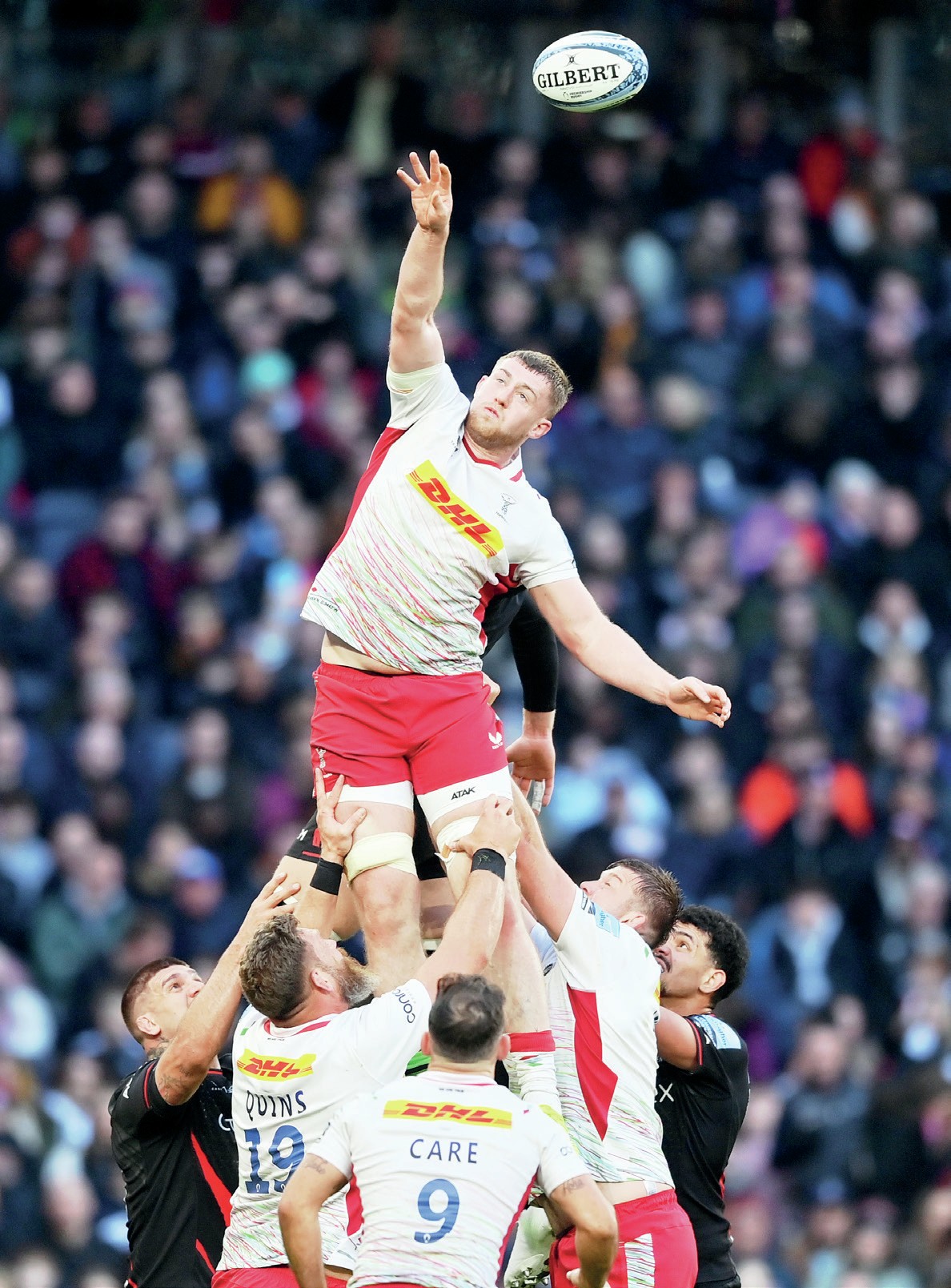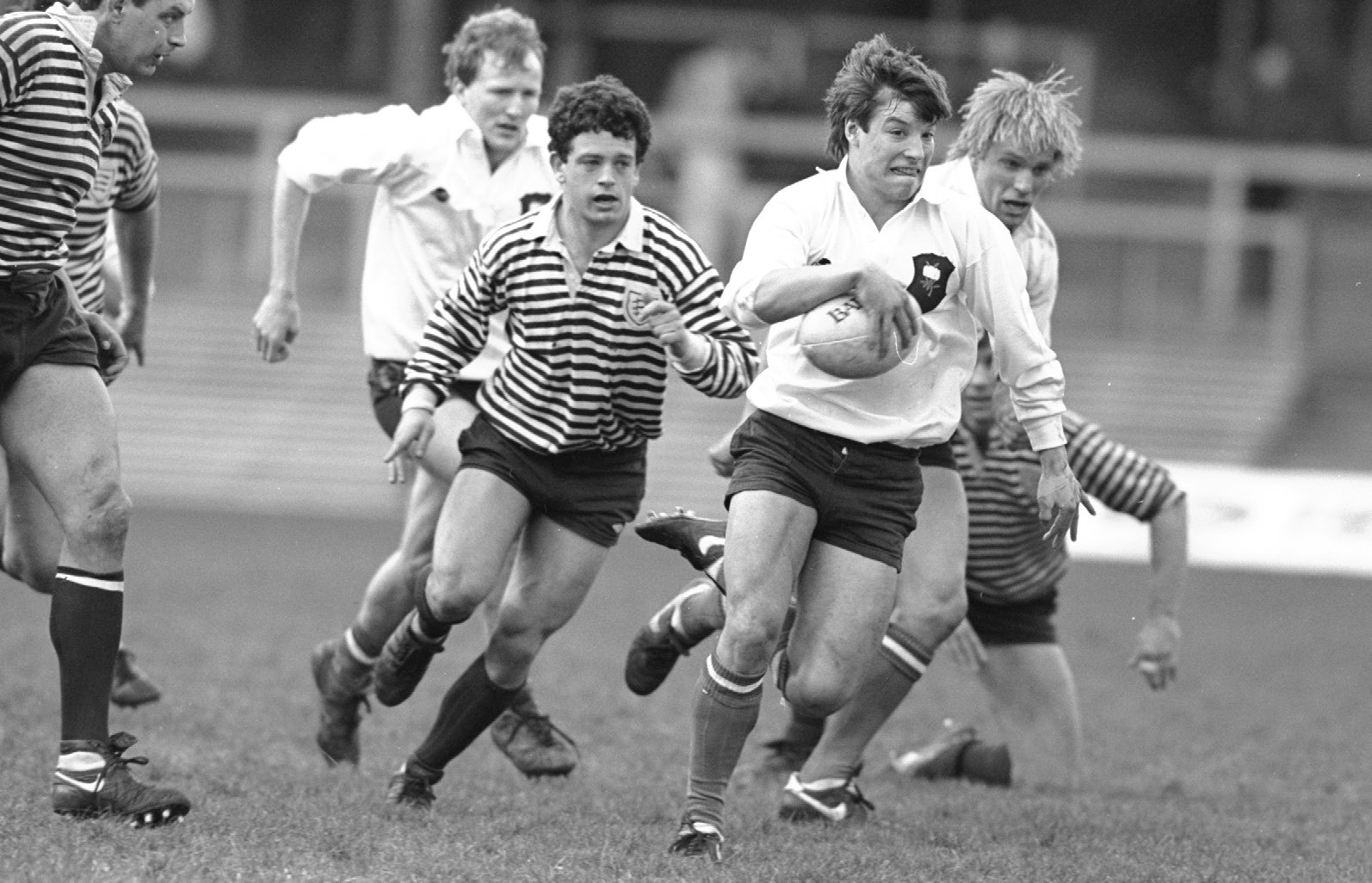 What do the RFU and the Premiership have in common? First, both have hit the headlines this week with announcements that most rugby fans will greet with the despair of expectation and a sense of
What do the RFU and the Premiership have in common? First, both have hit the headlines this week with announcements that most rugby fans will greet with the despair of expectation and a sense of
futility. Will those in charge ever take in to consideration the needs of their loyal fans?
In Europe (as expected) the French clubs folded under pressure from their Union and it now looks most unlikely that the English clubs will reach an accord with any of the other European Unions. So they will either have to look farther afield, capitulate and hope they are allowed back, or sulk and play with themselves.
Despite the rhetoric from both sides, most fans will be hoping that a compromise can still be found even if it takes the ‘powers that be’ at BSkyB and BT to agree and bang some heads together, although now there is a sense that it is not about the money but all about power and control.
For what amounts to just over an extra £1 million each per club per year for the European part of the BT contract, when laid against the disruption caused and the fact that compromise has been offered and rejected, it would appear that the subtext of competition control now dominates the argument.
The fact that the RFU were not invited to a meeting with all the European Unions involved, speaks volumes about what would appear to be the perceptions that are now held by the other Unions about the RFU.
Their exclusion would seem to indicate that there is a belief within the other Unions that the RFU executive is weak and may have already ceded power to their professional clubs.
Their fear is, the RFU council which represents the wider English game at the RFU, has been sidelined and now seems so denuded of power that the Union is effectively run and administered by the professional staff, who it seems would prefer to deal with the professional clubs, but will not confront them for fear of repercussions.
The RFU are in a delicate position as they try to keep their clubs on board with Stuart Lancaster‘s World Cup preparations while simultaneously attempting not to upset all the other Unions and their players before they sign the 2015 RWC participation agreements.
The RFU’s silence while all other Unions were rallying against clubs taking control of the European competition, has left a suspicion that they are unwilling to put their heads above the parapet for fear that the clubs will withhold players as England build towards 2015.
Talking of 2015, brings me to the unpalatable announcement that the cheapest tickets at the World Cup final will cost a whopping £150 with the most expensive tickets an eye-watering £715 which is more than the most expensive seat at next year’s football World Cup final (£650) and only just below the 2012 blue ribbon Olympic 100 metres final (£725).
Admittedly, some of the pool stage tickets will be only £15 for adults – but in reality they will more than likely be the games that are the least attractive and hardest to sell.
The prices, according to England’s 2015 chief executive Debbie Jevans are ‘affordable and accessible’ something that I am sure many of those that follow the club and international game would not agree with.
The most expensive tickets for the Six Nations are around £93, a price that many say is excessive for ordinary fans and there are often complaints that the Union are thinking only of their corporate fans by pricing them so highly.
Over half the 2.3 million tickets available for the RWC will cost at least £100 or more but only around 20 per cent will cost £50 or less with fewer than nine per cent (including those available for children) below £20 and it is unlikely that many of those ‘cheap tickets’ will be available for the England games.
Even if they were, it is unlikely that many children would be able to attend the England games because kickoff is at 8 pm meaning it would all end at around 9.45pm which, even if you live in London, would make it a very late night for young children.
As the RFU have been trumpeting record receipts for the past year I would have hoped that they would have considered local fans and spectators and perhaps put aside some of that extra profit to help reduce the pressure on the need for the World Cup matches to charge so much and kick off so late.
There are 48 matches in the World Cup and a need to raise £60 million for the IRB (the other £20 million has been pledged by government) so each match must average around £1.25 million in profit to break even.
This should be easily surpassed if all the tickets are sold or even if just the games at Twickenham and a few of the other major venues with big names sides sell out.
A Rugby World Cup is the chance to attract new young players to our game but if they can’t get to see England games because of late kick offs and high priced tickets, how will they be enthused?
I am afraid to say that a cheap ticket to a midweek game watching Americas 2 v Asia 1, just won’t cut it if you want a meaningful legacy.
All fans want is good rugby contests at a time and price that is convenient for them and their families – which it seems neither the Premiership nor the RFU can provide.

2 Comments
You must be logged in to post a comment Login
Leave a Reply
Cancel reply
Leave a Reply
You must be logged in to post a comment.
























Pingback: poppenhuis
Pingback: LSM99 แทงบอล มวย หวย สล็อต คาสิโน ครบวงจร